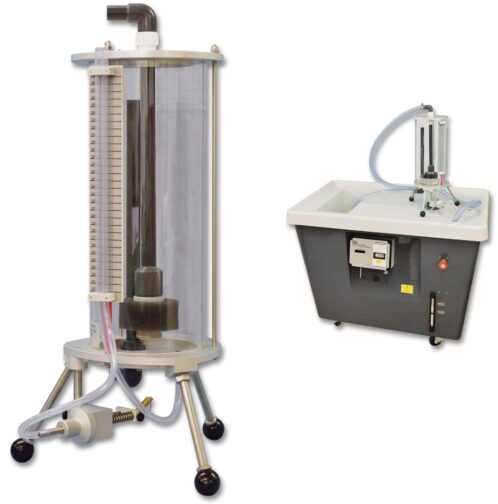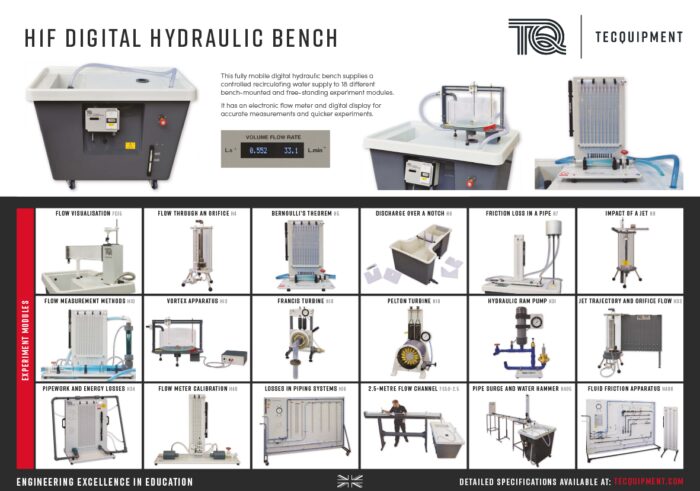Experiment
H4
FLOW THROUGH AN ORIFICE
An apparatus to study of the flow of water through a vertically mounted orifice.
If you have any questions or you'd like to discuss a product, please call us.
+44 1159 722 611FLOW THROUGH AN ORIFICE
TecQuipment’s Flow through an Orifice apparatus allows students to measure:
- Decrease in flow
- Contraction of the stream
- Energy loss
They find these measurements as water leaves an orifice. Students can also use the apparatus to study different shapes of orifice (extra orifices are available separately, H4a).
The apparatus works with TecQuipment’s Digital Hydraulic Bench (H1F) and stands on the hydraulic bench worktop. The equipment has a transparent cylindrical tank, with a mounting in the base for different orifices. TecQuipment supplies the apparatus with a sharp-edged orifice already mounted. Water flows into the tank from the hydraulic bench through an adjustable diffuser. The flow rate and an overflow pipe set the water level. To change the level in the tank (and so the head on the orifice), students adjust the flow to the diffuser. Water leaves the tank through the orifice. The jet that leaves the orifice discharges into the hydraulic bench measuring tank.
Manometers measure the total head on the orifice and under the jet. A traverse assembly holds a Pitot tube which students can position anywhere in the jet. A sharp blade accurately measures the jet diameter. This allows students to find the contraction coefficient.
Learning outcomes
Investigations into a variety of orifices over a range of flow rates, including:
- Determination of contraction and velocity coefficients
- Calculation of discharge coefficient
- Determination of actual discharge coefficient, and comparison with calculated values
- Determination of the various coefficients over a range of flow rates to show the influence of Reynolds number
- Study of the characteristics of different orifices (needs ancillary products H4a)

















